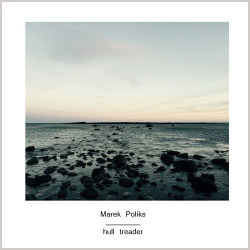
Referencing sci-fi, C.S. Lewis, and alien worlds, the compositions of Marek Poliks each have a central metaphor like alien environment and warmth, spaceship and cradling, performed by ensembles using traditional and electronic instruments and objects.
Save $0.80
Out of Stock
Quantity in Basket: None
Log In to use our Wish List
Shipping Weight: 3.00 units
Sample The Album:
Marek Poliks-composer
Roc’o Bolanos-bass clarinet, percussion
Daniel Brew-electric guitar
Distractfold-ensemble
Zinajda Kodric-flutes
Emma Richards-percussion, electronics
Linda Jankowska-violin
Beth Weisser-viola, objects, ekectronics
John Pickford Richards-viola, objects, electronics
Click an artist name above to see in-stock items for that artist.
Label: Another Timbre
Catalog ID: at95
Squidco Product Code: 22141
Format: CD
Condition: New
Released: 2016
Country: UK
Packaging: Cardboard Gatefold
"Hull Not Continent" (2014) recorded at the University of Huddersfield 13th August 2015
"Treader Always In Station" (2014) recorded at the Harvard University Studio for Electroacoustic Composition 15/16th December 2015.
Interview with Marek Poliks
'Hull Not Continent' and 'Treader Always In Station' are both distinctive and unusual titles. What do they refer to, and does this have any direct input into the music?
I want my music to invite people into material experiences of alien environments. It's a trick, it's a heuristic for embodiment. When I allow a sensation to belong to a self-sustaining world outside of my own - my world, the world I am responsible for maintaining - I can relax the more stubborn corners of my attention into my body. The more realistic the alien world, the greater the effect.
And, so, here come the titles:
'Hull Not Continent' - this other world is not a place to live, but it's a thing that keeps me safe.
'[Dawn] Treader Always In Station' - I'm leaving my body with my body, I'm leaving without leaving. (And for me the C.S. Lewis reference touches both sci-fi escapism and the obstacles of Cartesian dualism).
Your music is hard to categorise, which is one of its strengths for me. But I wonder how - if pushed - you would describe it? Not in terms of genre, but literally how you describe the kinds of sounds you are using, and how you organise them?
So again the goal is helping people feel safe and warm and in their bodies (if they need help doing so). I want them to explore or discover something concurrently with or as a means to embodiment. Each work has a central metaphor like alien environment and warmth, spaceship and cradling - also the club, and club music, which is always its own soundtrack.
I think these invitations have a gestural model, there is a push against a black hole of physical emergency. The push aspirates my music, and then it scurries into alien plants or radiators or sunlight or whatever. Sometimes it gets stuck and needs to articulate itself many times. Sometimes it works and I get to do my best electroacoustic impression of speculative field recordings for a long time. Everything collapses in service to the speculative world's physics.
The push forms the skeleton of 'hull' - it might help to listen to the piece through that gestural model. 'treader' features the push too, but it's a downward push, it's a relaxing push actually - caverns after sub-basement after basement after basement - pushes after the first push.
You refer to an 'electroacoustic impression of speculative field recordings'. Though both pieces are composed fully down to the finest detail, the soundworlds of both pieces remind me of electroacoustic improvisation. Is that a reference point for you and a genre that you are familiar with?
A lot of people have said this to me! I have a lot of respect for that field and I can sense the similarity. Most EAI has a materialist underpinning, right? - it honors the specific physicalities and agencies of the instruments and objects involved. One could go so far as to say that it takes these forces as its material. But I think that a materialist musical project inevitably amplifies the human interpretive physicality as well - a human hand exploring a metal disc reveals the disc but also discloses its fingers. Fingers seem central to EAI, at least as far as I understand it. I think my sci-fi materialism is almost in conflict with fingers? For now, I like the conflict.
I was struck by your decision to insert a long pause between the two pieces on the disc. Why did you want this silence?
It's like an airlock. Each world has a different vibe-atmosphere, so we need to de/repressurize. I think it helps 'treader' establish its vibe on its own, less in relation to 'hull'.
Could you say how you came to experimental music? Where did you start and what are the key things that brought you to where you are now?
Marilyn Manson! When I first heard 'Mechanical Animals', I was so struck by its sense of world. His music felt really empowering to me. Even though these worlds were horrible and creepy, they felt like places I could escape to. I would put on 'Holy Wood' and go to the ocean, and the music made the ocean more intense, more alien. Classic teen. From there to trance music, ambient, etc... eventually leading me to the avant-garde, which is kind of the ultimate escapism. The a-g works in totally platonic space - listening to it requires building these constellations of formal markers, internal and historical references, etc.... I liked that for a long time. At some point I realized that the a-g (and maybe even artmaking more generally) is actually the practice of distance - that between matter and its halo, ceremonial role, kyriarchal history, hologram. A-g art's a type of gaze, whereby matter is owned and enframed and assumed into discourse. It's romantic too. This gaze is the archetypal romantic gesture (the lifting, the elevation). Residual matter is cloaked in incense smoke. I'm generalizing, but I think you know what I mean?
And on the other hand, the escapism I'm after really isn't romantic at all. I love to look at sci-fi handbooks and dictionaries and maps of fake planets. This kind of documentation gives me a necessary level of detail for the speculative world to feel realistic. I don't think you can effect world through symbolic play - the goal is precisely to not be abstract! These days I listen to a lot of videogame soundtracks, to a lot of minimal house from the mid-aughts, and to lots and lots of trap music (which for me is really the music most engaged with a non-metaphorical viscerality). And of course the ambient and the goth/industrial/dark ambient have stuck with me. I think that the 'Holy Wood' project is where I'm ending up again - I want to amplify the ocean and make it more intense, not amplify my subjectivity in relation to the ocean.
Artist Biographies
• Show Bio for Emma Richards "British violist Emma Richards is based in Manchester and performs internationally as a soloist and chamber musician. As an undergraduate she studied at the Royal Northern College of Music with çsd’s Valdimarsdottir and Simon Rowland-Jones. She has been the recipient of numerous scholarships and prizes including the Cecil Aronowitz Memorial Award and the Countess of Munster Musical Trust. Emma pursued her postgraduate studies at the Hochschule fźr Musik und Darstellende Kunst in Frankfurt am Main. EmmaŐs primary passion is chamber music and she combines work as a guest performer with projects with her duo partner, acclaimed pianist Cordelia Williams. Upcoming concerts include MozartŐs Kegelstatt Trio at the Wiltshire Music Centre and duo recitals at Malmesbury Abbey, City University, Reading University and at Kendal Midday Concert Club. She has performed with the Tippet Ensemble, the Benyounes Quartet and often with pianist Duncan Honeybourne. Recent concerto performances include the Walton Viola Concerto with the Wiltshire and Swindon Youth Orchestra and Mozart Sinfonia Concertante with the Neston Festival Orchestra. As a soloist Emma has performed at the Hindemith Tage Festival in Frankfurt-am-Main (Germany) and at the 37th International Viola Congress in Stellenbosch (South Africa). Emma has recently attended festivals such as the International MusicianŐs Seminar, Prussia Cove, Frźhlingsakademie (Neustadt an der Weinstra§e) and Dartington International Summer School. As an orchestral musician Emma has worked with the Royal Liverpool Philharmonic Orchestra and BBC Philharmonic Orchestra and has recently become an extra musician with the Deutscher Kammerakademie Neuss Emma is sought after as an interpreter of contemporary music and believes strongly in promoting the music of today. She is a founding member of Manchester-based Distractfold Ensemble and is a guest violist with two contemporary ensembles in Paris Đ soundinitiative and No Input Ensemble. As a soloist, Emma is dedicated to commissioning new works alongside performing the established repertoire. Recent solo performances include Tre Notturni Brillianti by Salvatore Sciarrino, Embellie by Iannis Xenakis as well as recent solo pieces by John Croft, Mauricio Pauly, Chris Swithinbank and Andrea Sarto. In 2014 Distractfold became the first British ensemble ever to win the prestigious Kranichsteiner Musikpreis at the Darmstadt International Festival for New Music . The coming season will take Emma to Florence, Poznan, Gdansk, Chicago, Boston, New York, Darmstadt and Pontevedra as well as to England for concerts in London, Huddersfield and Manchester. In 2014 Emma performed on two CDs for Another Timbre Đ Grizzana with Ensemble Grizzana and Pneuma with Distractfold Ensemble. 2015 brings further exciting collaborations with Another Timbre plus a summer of recording with Distractfold Ensemble." ^ Hide Bio for Emma Richards • Show Bio for John Pickford Richards "Called "wholesome-looking" by the New York Times, violist John Pickford Richards has gained a reputation for performing new and unusual music. Before playing in JACK, he was a founding member of the ensemble Alarm Will Sound, allowing him to work closely with composers such as John Adams, Meredith Monk, and Steve Reich at venues such as Carnegie Hall, Lincoln Center, and the Holland Festival. John has appeared with bands such as the All-American Rejects, Silversun Pickups, and Grizzly Bear and has performed as soloist with the Pasadena Symphony, Armenian Philharmonic, Wordless Music Orchestra, Ossia New Music, and with the Lucerne Festival Academy Orchestra playing the solo part to Luciano Berio's Chemins II under the direction of Pierre Boulez. He holds degrees from the Interlochen Arts Academy and Eastman School of Music where his primary teachers were David Holland and John Graham." ^ Hide Bio for John Pickford Richards
11/20/2024
Have a better biography or biography source? Please Contact Us so that we can update this biography.
11/20/2024
Have a better biography or biography source? Please Contact Us so that we can update this biography.
Track Listing:
1. Hull Not Continent 5:15
2. Hull Not Continent 14:57
3. Hull Not Continent 2:06
4. Pause / Treader Always In Station 1:30
5. Treader Always In Station 3:52
6. Treader Always In Station 8:32
7. Treader Always In Station 13:18
8. Treader Always In Station 5:42
9. Treader Always In Station 3:05
Compositional Forms
Septet recordings
Electro-Acoustic
Staff Picks & Recommended Items
New in Compositional Music
Objects and Home-made Instruments
Search for other titles on the label:
Another Timbre.


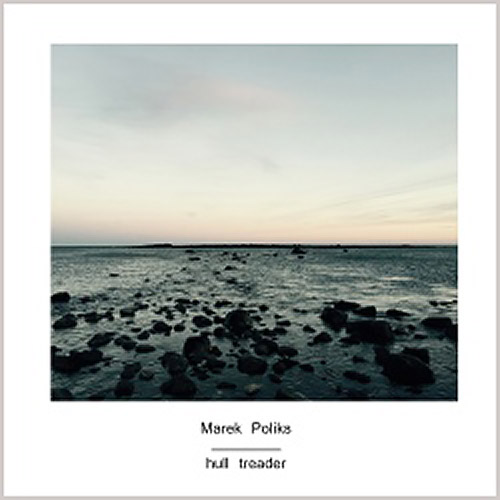


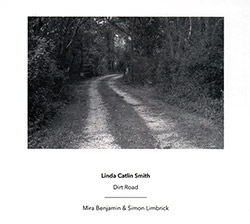




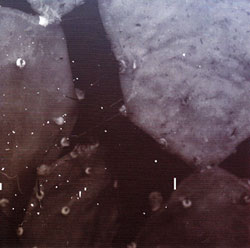
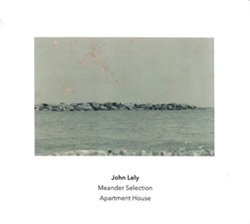
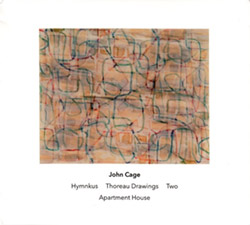
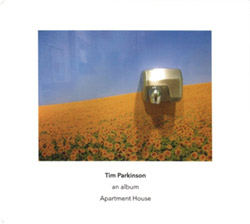
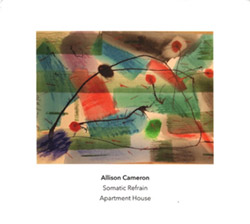
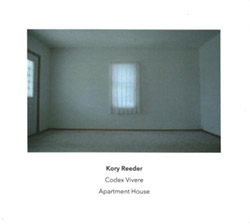
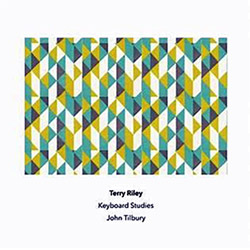







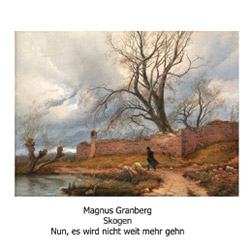
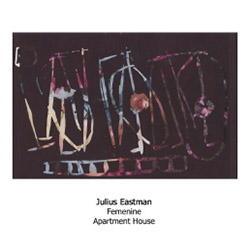
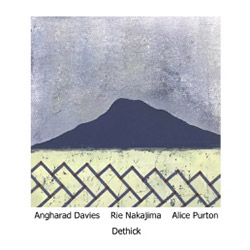
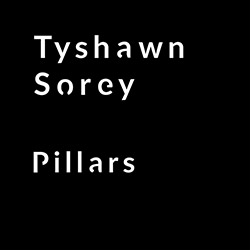



![Guy, Barry / Ken Vandermark: Occasional Poems [2 CDs]](https://www.teuthida.com/productImages/misc4/34849.jpg)
![Novoa / Carter / Mela Trio: Vol.1 [VINYL]](https://www.teuthida.com/productImages/misc4/35236.jpg)


![Elephant9 : Mythical River [VINYL]](https://www.teuthida.com/productImages/misc4/34624.jpg)
![Evans, Peter (Evans / Eldh / Black): Extra [VINYL]](https://www.teuthida.com/productImages/misc4/35279.jpg)

![McPhee, Joe: Straight Up, Without Wings [BOOK]](https://www.teuthida.com/productImages/misc4/35454.jpg)
![Jeck, Philip: rpm [2 CDs]](https://www.teuthida.com/productImages/misc4/35455.jpg)













![Barker / Parker / Irabagon: Bakunawa [VINYL]](https://www.teuthida.com/productImages/misc4/35533.jpg)
![Blaser, Samuel / Marc Ducret / Peter Bruun: Dark Was The Night, Cold Was The Ground [VINYL 10-inch]](https://www.teuthida.com/productImages/misc4/35492.jpg)








![Warren, Kenny (Warren / Hoffman / Ellman): Sweet World [VINYL]](https://www.teuthida.com/productImages/misc4/35451.jpg)




![Blake, Ran / Dave Knife Fabris: Live Amsterdam 2006, First Visit [CD + POSTCARDS]](https://www.teuthida.com/productImages/misc4/35275.jpg)













![DNS: Taking Big Bites Of The Khandas Three Cafes Deep [2 CDs]](https://www.teuthida.com/productImages/misc4/35334.jpg)




![Cleaver, Gerald: The Process [VINYL]](https://www.teuthida.com/productImages/misc4/34966.jpg)




![Alva Noto: HYbr:ID II [VINYL 2 LPs]](https://www.teuthida.com/productImages/misc4/35201.jpg)

![Baron, Derek / Luke Martin: Distinct and Concealed [CASSETTE + DOWNLOAD]](https://www.teuthida.com/productImages/misc4/35079.jpg)

![Lyle, Erica Dawn : Colonial Motels [CASSETTE + DOWNLOAD]](https://www.teuthida.com/productImages/misc4/35080.jpg)









![Sanna, Claudio: Compositori Sardi Contemporanei II [2 CDs]](https://www.teuthida.com/productImages/misc4/35317.jpg)







![Zurria, Manuel: Fame di Vento [3 CDs]](https://www.teuthida.com/productImages/misc4/35167.jpg)

![Granberg, Magnus / Nattens Inbrott / Skogen: Holde Traume, Kehret Wieder! [2 CDs]](https://www.teuthida.com/productImages/misc4/35038.jpg)
![Frey, Jurg: Outermost Melodie [2 CDs]](https://www.teuthida.com/productImages/misc4/35039.jpg)

![Pavone, Jessica: Reverse Bloom [VINYL]](https://www.teuthida.com/productImages/misc4/34895.jpg)




![Modney (Modney / Wooley / Gentile / Roberts / Pluta / Symthe / ...): Ascending Primes [2 CDs]](https://www.teuthida.com/productImages/misc4/34852.jpg)









![Elephant9 with Terje Rypdal: Catching Fire [VINYL 2 LPs]](https://www.teuthida.com/productImages/misc4/35355.jpg)
![Deerlady (Obomsawin, Mali / Magdalena Abrego): Greatest Hits [VINYL]](https://www.teuthida.com/productImages/misc4/34876.jpg)




![Haino, Keiji: Black Blues [2 CDs]](https://www.teuthida.com/productImages/misc4/35109.jpg)



![Surplus 1980: Illusion of Consistency [CD]](https://www.teuthida.com/productImages/misc4/35069.jpg)
![Staiano, Moe: Away Towards the Light [VINYL + DOWNLOAD]](https://www.teuthida.com/productImages/misc4/35037.jpg)



![Caveira (Gomes / Sousa / Abras / Ferrandini): Ficar Vivo [VINYL]](https://www.teuthida.com/productImages/misc4/34643.jpg)
![Gregg, J. J. / David Van Auken: Lunar Prairie [CD w/ DOWNLOAD]](https://www.teuthida.com/productImages/misc4/34611.jpg)

![Coultrain: Mundus [VINYL]](https://www.teuthida.com/productImages/misc4/32439.jpg)
![Mattin: Songbook #6 [VINYL]](https://www.teuthida.com/productImages/misc4/27317.jpg)
![Punkappella: Wake Up [7-inch VINYL]](https://www.teuthida.com/productImages/misc4/17519.jpg)
![Residents, The: WARNING: UNiNC.: Live And Experimental Recordings 1971-1972 [VINYL 2 LPs]](https://www.teuthida.com/productImages/misc4/31521.jpg)
![Coultrain: Phantasmagoria [VINYL]](https://www.teuthida.com/productImages/misc4/30142.jpg)
![Lennon, Sean Ono: Asterisms [VINYL]](https://www.teuthida.com/productImages/misc4/34517.jpg)

![Coley, Byron: Dating Tips for Touring Bands [VINYL]](https://www.teuthida.com/productImages/misc4/17906.jpg)

![Lost Kisses: My Life is Sad & Funny [DVD]](https://www.teuthida.com/productImages/misc4/lostKissesDVD.jpg)